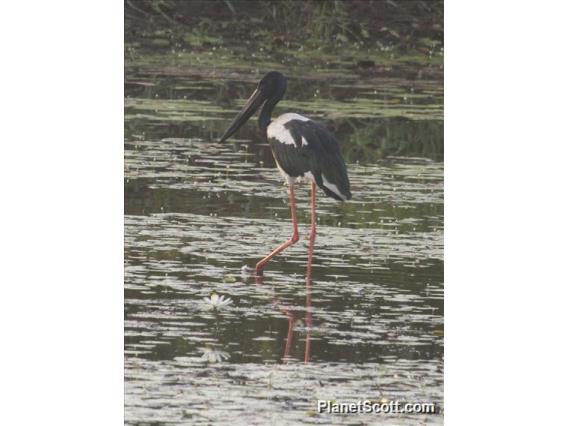Black-necked Stork (Ephippiorhynchus asiaticus)


About Black-necked Stork (Ephippiorhynchus asiaticus)
- Kingdom: Animals
- Phylum: Chordates
- Class: Birds
- Order: Pelicans
- Family: Storks
The black-necked stork is a tall long-necked wading bird in the stork family. It is a resident species across the Indian Subcontinent and Southeast Asia with a disjunct population in Australia. It lives in wetland habitats and near fields of certain crops such as rice and wheat where it forages for a wide range of animal prey. Adult birds of both sexes have a heavy bill and are patterned in white and irridescent blacks, but the sexes differ in the colour of the iris with females sporting yellow irises and males having dark-coloured irises. In Australia, it is known as a jabiru although that name refers to a stork species found in the Americas. It is one of the few storks that are strongly territorial when feeding and breeding.
Source: Wikipedia
Lifelists
Visits
-
2006-01-09
Kheoladeo National Park, India× -
2012-11-07
Cattana Wetlands, Australia× -
×
-
2013-02-14
Kaziranga NP, India×




